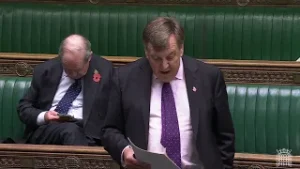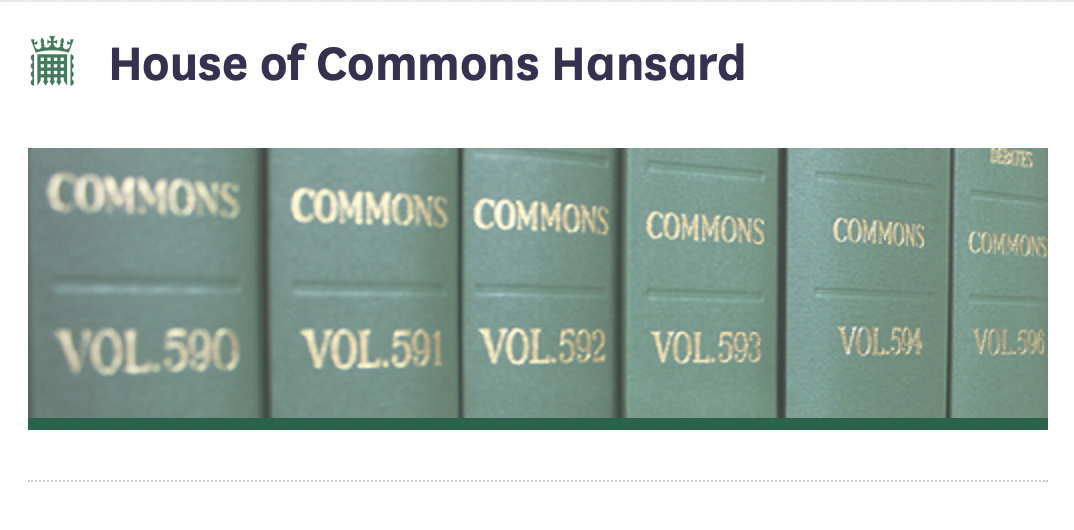John Whittingdale The Minister of State, Department for Culture, Media and Sport, Minister of State (Department for Science, Innovation and Technology)
As the hon. Member for Barnsley East has already set out, section 270 of the Communications Act gives Ofcom enforcement powers to use in the event that it believes the provider of a licensed public service channel has failed to fulfil its statutory remit, or to make an adequate contribution to the public service remit for television. In those circumstances, Ofcom could issue a direction to the public service broadcaster setting out the steps for remedying the failure. Should it not give effect to that direction, Ofcom can also then impose additional obligations on the broadcaster.
In that context, clause 6 does three things. It amends section 270 to make clear that Ofcom can make directions and impose licence conditions in relation to any services that the public service broadcaster has indicated it is using to fulfil its channel remit. In the light of the ability of licensed public service broadcasters to use a wider range of services to deliver their remits, it will allow Ofcom to consider the record of the provider in using on-demand programme services when considering enforcement action.
Turning to amendment 20, I understand the Opposition’s concern about whether Ofcom will have the tools it needs, which we absolutely share. However, we believe the particular change sought by the amendment is not necessary and would carry with it some dangers. First, as the Government have already set out to the Culture, Media and Sport Committee, there are reasons why Ofcom might form the opinion that the failure of a provider is serious, but it may consider that a failure is more serious if it is likely that it will be repeated without regulatory intervention.
Secondly, the power to enforce against the licensed public service broadcaster is not the only tool available to Ofcom. Ofcom can also take less formal action, working with public service broadcasters to produce good outcomes; it also has legal options.
Thirdly—this is perhaps the most important consideration —the amendment breaches what is quite an important principle: public service broadcasters need to be independent to make their own decisions about how they best run their channels now and in the future. Ofcom’s role is to reach judgment on whether broadcasters have succeeded in meeting their public service remit. The amendment would make Ofcom a pre-broadcast regulator rather than a post-broadcast regulator. It would give Ofcom the ability to penalise failures that have not yet occurred.
Andy Carter Conservative, Warrington South
It strikes me that the Opposition’s amendment would effectively take regulation back to the days of the Independent Broadcasting Authority where, before anything was done, permission was needed from the regulator. That type of regulation is of no benefit to the creative industries and to the freedom to innovate in the way the sector requires.
John Whittingdale The Minister of State, Department for Culture, Media and Sport, Minister of State (Department for Science, Innovation and Technology)
My hon. Friend is right. It is a long-established principle that Ofcom is a post-transmission regulator. The acceptance of the amendment would change that and give Ofcom an ability to intervene before transmission. That would be a breach of what we consider quite an important principle. Therefore, on that basis, we cannot accept the amendment.
Kirsty Blackman Shadow SNP Spokesperson (Cabinet Office)
I have a follow-up question. Can the Minister give us some indication or understanding of how Ofcom will ensure that the remits are fulfilled across public service broadcasting, without having any sort of pre-conversations with each broadcaster—to ensure, for example, that there is enough educational content across all of them? How does he expect Ofcom to ensure that that happens without having pre-conversations and by only being a post-transmission regulator?
Some of the quotas and individualised direction are being removed. I am not necessarily suggesting that that is a bad thing, but the Minister’s point about Ofcom being a post-transmission regulator goes against the fact that it will have expectations on the broadcasters as a whole, and will require some of them to do some things and some to do other things without knowing what those things are until afterwards.
John Whittingdale The Minister of State, Department for Culture, Media and Sport, Minister of State (Department for Science, Innovation and Technology)
We are about to debate the fact that individual channels will be subject to some quotas. There are also the statements of programme policy that Ofcom will be required to approve. Having said that, Ofcom will reach a judgment on delivery of the remit, looking across the broad extent of public service broadcasting. Ofcom will be able to make it clear if it thinks a particular genre has not been sufficiently provided either by an individual public service broadcaster or, indeed, across the whole range of public service content. It will be for Ofcom to determine that, but I believe the Bill gives it that ability.

